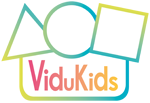Dr Oliver Thiel, associate professor at Queen Maud University College, discusses the use of technology in early childhood mathematics education. He shares his experiences with young children (2-3 years of age) using technology to learn mathematical concepts through activities like stop-motion video creation. The children learnt about counting, spatial relationships, shapes, and measurements. The professor emphasises the importance of mastering the technology first and then integrating mathematics. He also highlights the difference between passive consumption of screen content and active creation, advocating for the latter as a more beneficial approach to learning mathematics.
Silvija Komočar, principal of the kindergarten Mavrica in Slovenia, discusses the use of video technology in teaching mathematics to preschool children. She emphasises the importance of the learning process over the final product and the need for children to learn at their own pace. The kindergarten uses the ViduKids project, which involves children learning to use a camera and exploring mathematical concepts through video production. This process encourages teamwork and communication among the children. The kindergarten also conducts workshops for teachers to familiarise them with the stop-motion studio app they use in their classrooms.
Dr Piedade Vaz Rebelo, an educational psychologist and professor at the University of Coimbra, discusses the ViduKids project. The project involves developing a pedagogical framework and implementing teacher education and kindergarten activities. The professor explains that the ViduKids project can contribute to the implementation of an integral education of the child, which she refers to as a pedagogy of the ‘3H’ – Heads-On, Hands-On, and Hearts-On. In the Heads-On approach, the child is cognitively engaged, searching for information, asking questions, solving problems, and comparing data. The child is behaviourally and actively involved in the Hands-On approach, particularly in product development or a project-based approach. Lastly, in the Hearts-On approach, the child is emotionally engaged, with interest, joy, and positive emotions bringing life to everything the child does.
Corinna Bartoletti is a representative from Eureka, a small association in Italy that partners with the ViduKids project. Eureka focused on family learning and special needs in implementing the ViduKids activities. They observed that the activities were particularly effective in engaging children who typically have difficulties concentrating on learning activities or comparative games. Corinna strongly likes the project and mentions that they are already considering its future developments in collaboration with their partners.





